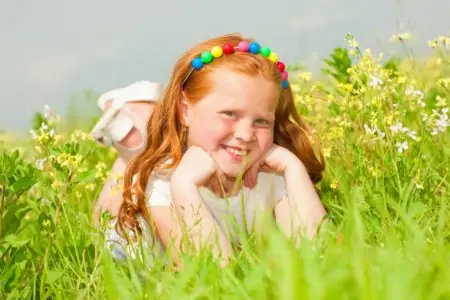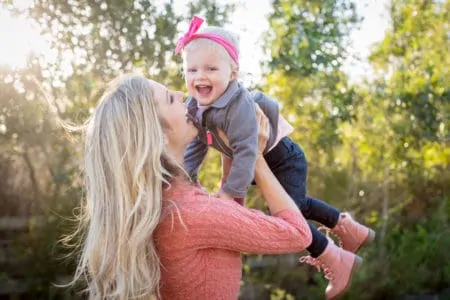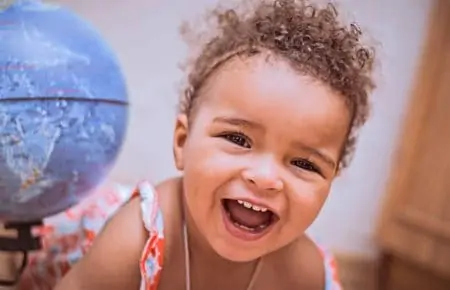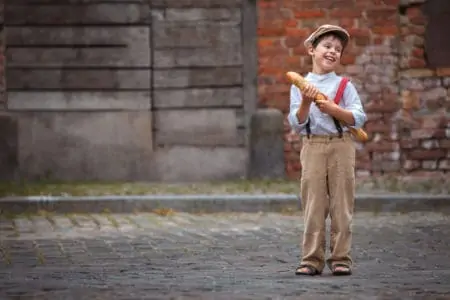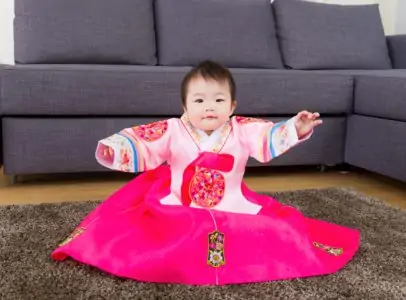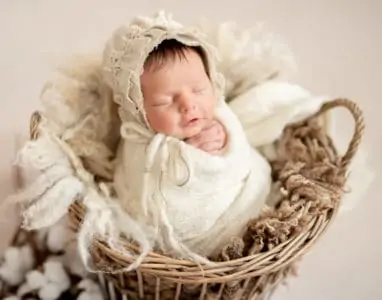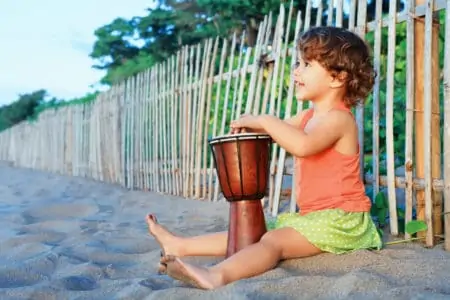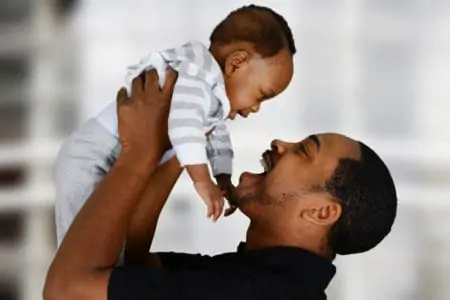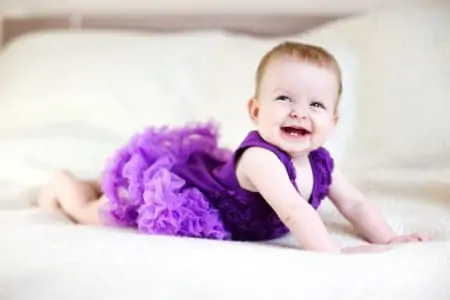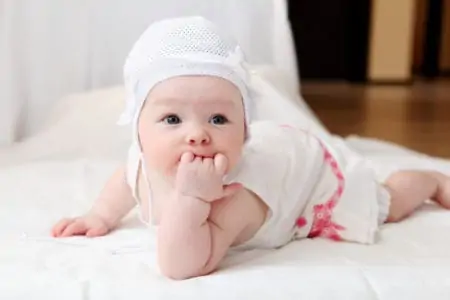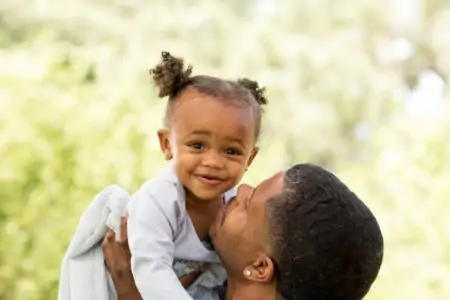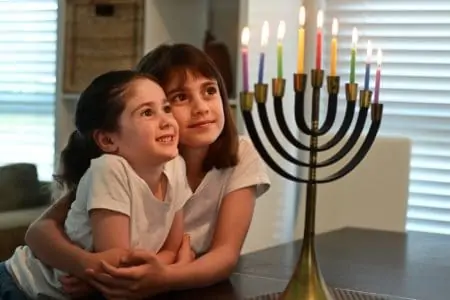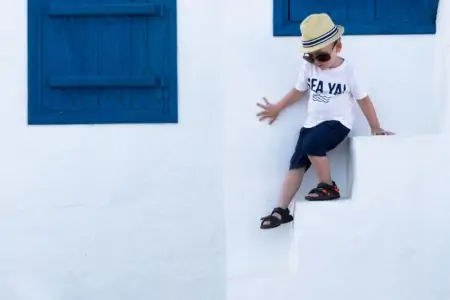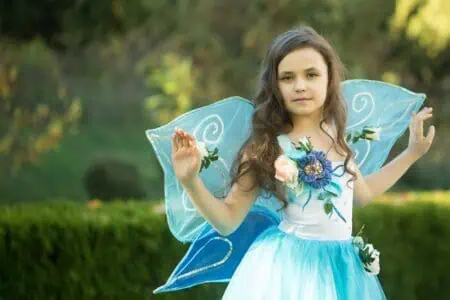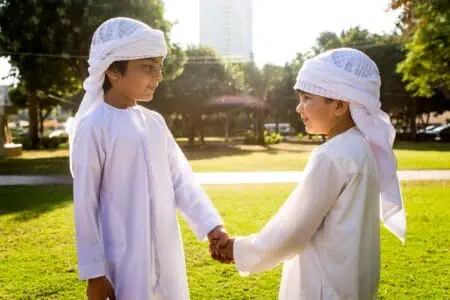Gaelic girl names are beautiful and packed with historical significance. However, it can be a challenge to distinguish authentic Gaelic female names from their Norse and Scottish cousins.
But don’t worry, as that’s where we come in. Keep reading to discover 100 original Gaelic names for girls with fascinating origins, gorgeous meanings, and varying popularity levels. We’re confident you’ll have several favorites in no time!
100 Beautiful Gaelic Names for Girls
Check out some of the cutest Gaelic girl names below.
Adair
Adair is an uncommon choice among our Gaelic names for girls, meaning “ford at the oak tree.”
Adair, alternatively spelled Adare and Athdare, was first used by an Irishman named Robert Fitzgerald. He killed a knight to protect his family’s honor, making him a fugitive. He fled to Scotland, where he took on the name Athdare after a town in Ireland to hide his identity.
Modern bearers are scarce, with the most notable being child actress Adair Tishler and Brazilian singer Adair Cardoso.
Aifric
An ancient choice among our Irish female names, Aifric means “pleasant” or “enjoyable.”
Pronounced EYE-fric, Aifric was a popular name among Irish noblewomen during the Middle Ages. An alternative spelling is Africa, leading some to believe this name originated on the wrong continent. In Ireland, what’s old is becoming new again, with Aifric receiving its highest ranking of #275 in 2020. Modern bearers include Olympic rower Aifric Keogh and Irish novelist Aifric Campbell.
Aila
Aila is a Gaelic, Finnish, Turkish, and Hebrew woman’s name meaning “from the strong place.”
Aila, pronounced eye-luh or ay-luh, has many origins. In Finland, it’s the equivalent of Helga or Olga, meaning “bringer of light.” It’s also a variation of the Turkish name Ayla, meaning “halo,” and the Hebrew Eilah, meaning “oak tree.” Aila’s a top pick in Scotland, ranked #96 in 2020. It’s also an up-and-comer in the U.S., ranked for the first time in 2019. Now could be the perfect time to choose Aila before it becomes too mainstream!
Aine
Aine is a Gaelic female name meaning “radiance.”
Pronounced AWN-ya, Aine is anglicized as Anya. It has roots in Irish mythology, given to the queen of the Ulster fairies and the goddess of summer. This whimsical name remains a favorite on the Emerald Isle, ranked in the top 100 since 1975. Famous bearers include Irish composer and harpist Aine Minogue and installation artist Aine Phillips.
Aisling
Aisling means “dream” or “vision” in Gaelic.
Aisling, pronounced ASH-lyn, is a genre of Irish poetry where the poet receives a vision of a woman, sometimes young or old, who foretells the revival of Ireland’s fortunes. This poetic title was first used as a given name in the 20th century. A hip choice for Irish girls in the 90s, Aisling has become less popular, ranked #138 in 2020.
Alanna
Alanna is a Gaelic, German, Hawaiian, and Celtic girl’s name meaning “child.”
In Gaelic, Alanna is derived from leanbh, an endearing term for a child. It’s also a German name meaning “precious,” a Hawaiian name meaning “beautiful offering,” and a feminine version of the Celtic Alan, meaning “rock.” Alanna is a popular choice in Ireland, ranked #187 in 2020. In the U.S., Alanna ranked #560 in 2020, making it a unique alternative to trendier picks like Alaina and Arianna.
Alba
Alba is the Gaelic name for Scotland.
It is also a word in Spanish and Italian meaning “dawn.” In 2020, Alba was ranked #86 in its home country of Scotland and #375 in Ireland. In the U.S., however, Alba hasn’t made the top 1000 since 1928, making it a very rare choice.
Allie
Allie is a Gaelic name meaning “light” or “bright one.”
Allie is a diminutive of Aileen, the Scottish version of the Irish name Eileen. Eileen is derived from Helen, a Greek name meaning “light” or “shining.” Allie sounds more modern than old-fashioned Aileen or Eileen, making it a trendier choice for babies born in the 21st century. Other spelling options are Ally, Alli, or Alie.
Annag
Annag is a Gaelic name meaning “graceful.”
Annag is the Scottish Gaelic version of Anna, a Latin name derived from the Greek Avva and the Hebrew Hannah. Annag is more distinctive than its cousin Anna. However, it’s harder to spell and doesn’t look as aesthetically pleasing, which may be why it’s so uncommon. Even in its home country of Scotland, Annag hasn’t made the charts in years, whereas Anna was ranked the 41st most popular girl’s name in 2020. Potential nicknames are Anna or Ann.
Aoibheann
Aoibheann is a Gaelic name for girls meaning “beautiful sheen.”
Pronounced ee-van, Aoibheann is derived from the Old Irish Oebfinn, with “oeb” meaning “beauty” and “finn” meaning “fair” or “white.” A popular name in Ireland, Aoibheann’s complex spelling and pronunciation have prevented it from leaving the Emerald Isle. An ancient bearer is St. Enda’s mother, and a modern one is academic and broadcaster Aoibheann Ni Shuilleabhain.
Aoife
Aoife is a Gaelic women’s name meaning “beautiful” or “radiant.”
Pronounced EE-fa, Aoife is derived from the Irish word “aoibh,” meaning “beauty.” It’s often anglicized as Eva or Eve, even though the Irish rendering of these names is Eabha. In Irish mythology, Aoife was a mighty warrior woman who fought against demigod Cu Chulainn. Real-life Aoife’s are just as impressive, including famous geneticist McLysaght and Grammy award-winning singer O’Donovan.
Bebinn
Bebinn is a Gaelic name for girls meaning “fair woman.”
Bebinn, pronounced be-veen, is derived from “bean,” meaning “woman,” and “finn,” meaning “fair” or “white.” It’s often anglicized as Bevan or Bevin. Bebinn was a goddess associated with birth and the underworld in early Irish myths. In other legends, Bebhinn was a beautiful giant who sought sanctuary with hero Fionn Mac Cool to hide from an ugly giant that pursued her.
Blaine
Blaine is a Gaelic name meaning “slender.”
Blaine was a semi-popular boy’s name in the U.S. and Ireland during the 80s and 90s. While it’s no longer a trendy choice for males, Blaine has potential for females, with other traditionally masculine picks like Charlie, Blake, and Avery making their way to the U.S. top 200 girls’ names in 2020. Bearers include pro tennis champ Willenborg and actress Saunders, best known for her role as Carly in the U.S. sitcom The Middle.
Bridget
A strong choice among our Gaelic names for girls, Bridget means “power” or “exalted one.”
Bridget, alternatively spelled Briget or Brigid, is derived from the Irish word “brigh,” meaning “strength,” “vigor,” or “virtue.” In Ireland, the name’s popularity is often attributed to St. Brigid of Kildare, sometimes called “Mary of the Gael.” Brigid was also the name of a Celtic triple-deity associated with wisdom, healing, and blacksmithing.
Bronagh
Bronagh is a Gaelic girl’s name meaning “sorrow.”
Despite its sad meaning, Bronagh has been a sturdy name in Ireland for hundreds of years, thanks to St. Bronagh, a 6th-century holy woman who was a disciple of St.Patrick. Today, many girls from her home of County Down are named in her honor. In English countries, Bronagh is often anglicized as Brona, which is how the name is pronounced.
Cadhla
A stylish choice among our Gaelic girl names, Cadhla means “beautiful” or “graceful.”
Pronounced ky-la or kay-la, Cadhla is derived from several surnames, including the masculine surname O’Cadhla and the feminine Ni Chadhla and Bean Ui Cadhla. The former is usually given to unmarried and the latter to wed women. This sophisticated name is trendy in Ireland, ranked #160 for girls in 2020. The anglicized versions of Keily and Kelly are more prevalent in the U.S., squeezing into the top 1000 in 2020.
Caireann
Caireann means “little friend” or “little beloved” in Gaelic.
Pronounced care-in, Caireann is anglicized as Karen or Karan. An ancient bearer was the mother of Niall of the Nine Hostages, a legendary warrior and high king of Ireland. In modern times, a “Karen” is a slang term for an entitled or demanding woman, giving the name a negative undertone. If you like Karen but want to steer clear of the undesirable connotations, Caireann could be the perfect option!
Cairistiona
Cairistiona is a religious choice among our Gaelic names for girls, meaning “follower of Christ.”
It’s the Scottish Gaelic equivalent of the English Christina or Kristina. The name is rare, primarily used by Gaelic-speaking families in the Scottish Highlands. The most notable bearer was a 14th-century Scottish noblewoman who was a leading member of the Ruaidhri Clan. This elegant name could be a perfect choice if you plan to raise your daughter in the Christian faith.
Cameron
Cameron is a Gaelic name meaning “crooked nose.”
Cameron is one of several Gaelic female names initially masculine but has become unisex over time. It’s derived from the Gaelic “cam,” meaning “bent” and “sron,” meaning “nose,” most likely an endearing nickname given to a clan patriarch with a misshapen snout. Beautiful bearers (whose noses are far from crooked) include American actress Cameron Diaz and fashion model Cameron Russell.
Campbell
Campbell is a Gaelic name meaning “crooked mouth.”
Historically, Clan Campbell was one of the most powerful families in Scotland, first establishing their power in the 1200s. The clan likely got their name from a family patriarch who had an unusual mouth!
If you can get past the association with Campbell’s soup, this unique name could be an excellent alternative for its more popular cousin Cameron. While most bearers are male, some female Campbell’s exist, including TV anchorwoman Campbell Brown. Adorable nicknames include Cam or Bell.
Caoimhe
Caoimhe is a Gaelic female name meaning “beautiful.”
Pronounced KEE-va or KWEE-va, Caoimhe is a popular name in Ireland, ranked in the top 30 since 1997. Its challenging spelling and pronunciation have prevented this traditional Gaelic name from leaving the Emerald Isle. Only a few famous namesakes exist, including human rights activist Caoimhe Butterly and Irish politician Caoimhe Archibald.
Cara
Cara is a Latin, Greek, and Gaelic name meaning “friend” or “dear one.”
In Latin, it comes from “carus,” meaning “loved.” In Greece, it’s a shortened form of Katharina or Katherine, meaning “dear.” In Gaelic, Cara is a feminine name meaning “friend.” Cara is also prevalent in Turkey, Japan, Vietnam, and Scandinavia. This worldly name is very on-trend, with bearers like model Cara Delevingne and tennis player Cara Black.
Cassidy
Cassidy is a Gaelic name for girls, meaning “curly-haired.”
A perfect choice for a girl with ringlet curls, Cassidy is derived from the Gaelic given name Caiside, meaning “curly hair.” Many baby boomers and Gen Xers chose this name for their babies in the 90s and early 2000s, possibly inspired by the hit Grateful Dead song “Cassidy.” Cassidy has diminished in popularity since, ranked #406 in the U.S. and #700 in Ireland in 2020. Nicknames include sporty Cass, sweet Cassy, and old-fashioned Dee.
Ciara
Ciara is a Gaelic name for girls meaning “dark-haired one.”
It initially belonged to an Irish saint who prayed so hard that she made a fire disappear, saving a nearby town. While Ciara was traditionally pronounced KEER-a, modern bearers like singer Ciara Wilson go for the phonetic pronunciation of see-AHR-a instead. Common anglicizations are Keira, Kiara, and Keara.
Cliodhna
Cliodhna is a Gaelic female name meaning “shapely.”
Pronounced klee-ow-na, Cliodhna was the queen of the fairies in Irish mythology who left the otherworld to be with her human lover, Ciabhan, only to be taken up by a giant wave. This beautiful name was prevalent in Ireland during the 1990s but has taken a plunge, with only three bearers in 2020. Cliodhna is an undiscovered gem in the U.S., so it could be perfect if you’re looking for something unique with mythical roots.
Clodagh
Clodagh is a Gaelic name with an unknown meaning.
Pronounced CLO-dah, Clodagh is the name of a river in County Tipperary named after a local female deity. This ancient name is super popular in Ireland, ranked #46 in 2020. Clodagh has never made a blip on the U.S. radar, possibly because of its resemblance to the dirt-related adjective, cloddy.
Daireann
Pronounced dar-rawn, Daireann was a beautiful woman in Irish myths who fell in love with legendary hunter-warrior Fionn Mac Cool. He already had several wives, so she asked if she could be his only wife for a year, then have him half the time after that. In English, Daireann is often anglicized as Darina.
Deirdre
Deirdre is a Gaelic name for girls with an unknown meaning.
Deirdre is derived from the Old Gaelic name Derdriu, which may have come from the Irish word “der” meaning “daughter.” In Irish legend, Deirdre was a tragic heroine who fell in love with a warrior named Naoise. Conchobar, the King of Ulster, decided to take Deirdre for himself, killing her lover. Eventually, Deirdre died from a broken heart.
Eabha
Eabha is a Gaelic name meaning “life.”
Eabha is the Gaelic form of Eve, which is semi-popular in Ireland, ranked #375 in 2020. It’s pronounced the same as the Latin Ava, which is trendier than Eabha, currently classified as a top 5 girl’s name in Ireland, Scotland, and the U.S. Eabha could be the perfect choice if you like the sound of Ava but want something less mainstream.
Eibhlin
Eibhlin is a Gaelic female name meaning “hazelnut.”
Eibhlin is a Gaelic form of Eileen and Evelyn, pronounced ave-linn. It’s derived from the French Norman name Aveline, which, in turn, came from the Italian city Avella, named after a common hazel tree from the Corylus avellana region. Eibhlin was popularized by the 17th-century love song “Eibhlin a Ruan,” written by harpist Cearbhall O’Dalaigh to convince his lover to elope with him on her wedding day.
Eilidh
Eilidh is a Gaelic women’s name meaning “light.”
Eilidh, pronounced AY-lee, has two possible origins. It may be the Gaelic version of the Greek name Helen, meaning “bright” or “light.” It could also be the Gaelic form of Eleanor, derived from the Old French name Alienor. Eilidh is on-trend in Scotland, ranked #24 in 2020. However, its complex spelling and pronunciation have prevented it from being used outside the country.
Eimear
Eimear is a Gaelic female name meaning “swift.”
Eimear, pronounced ee-mer, can be spelled Emer, Eimhear, Eimir, or Eimhir. In Irish mythology, Eimear was the lover of hero Cu Chulain who possessed the six skills of womanhood: beauty, a sweet voice, charming words, wisdom, virtue, and skill at needlework. A real-life bearer includes singer Eimear Quinn, best known for winning the 1996 Eurovision contest with the iconic song “The Voice.”
Eithne
Eithne is a Gaelic name for girls with two possible meanings: “a kernel” or “little fire.”
Often thought to mean “a kernel of a seed or nut,” Eithne may also be the feminine version of Aidan, meaning “little fire.” Other common spellings include Ethna and Etney, often anglicized as Annie. This name was popular in ancient Ireland, born by three saints and several noblewomen. Eithne was also the mother of Lugh, one of the most prominent gods in Irish mythology.
Enda
Enda is a Gaelic name meaning “freedom of spirit.”
Pronounced AY-na, Enda is a masculine name that’s become unisex over time. It’s derived from the Gaelic word “ean,” meaning “birdlike.” This cute name is uncommon in and outside the Emerald Isle, making it a unique pick. Famous bearers include theatrical producer Enda Markey and actor Enda Oates, both male. So, it could be time for a female Enda to take center stage!
Etain
Etain is a Gaelic name for girls meaning “jealous.”
While naming your daughter “jealous” may be strange, there’s more to Etain than meets the eye! Etain was a heroine in Irish folklore who was so beautiful and graceful that other women were jealous of her! This name was sporadically ranked in Ireland until 2018, when it fell off the charts entirely. Even though it’s not as popular, Etain is a lovely name with a fascinating story behind it, making it a worthy contender.
Fallon
A strong choice among our Gaelic female names, Fallon means “leader.”
It’s derived from the Gaelic O’Fallamhain, meaning “descendant of Fallamhan,” which, in turn, is derived from “ollahnas,” meaning “leader” or “supremacy.” While Fallon is solely a surname in Ireland, it’s a relatively common first name for girls in Scotland and the U.S., ranked #313 and #859, respectively. Fallon first gained its feminine flair from Fallon Carrington, the protagonist in the 1980s TV series Dynasty.
Fiadh
Fiadh is a Gaelic name for girls meaning “wild” or “deer.”
Pronounced fee-a, Fiadh wasn’t used as a given name until the 20th century, first registered on Ireland’s name database in 2002. However, the word Fiadh has been around since ancient times, referring to a specific type of deer. The anglicized form, Fia, should become popular in the U.S., where similar-sounding Mia has been a top 10 girl’s name since 2009.
Fidelma
Fidelma is a Gaelic women’s name with two potential meanings: “beauty” or “constant.”
Fidelma, alternatively spelled Fedelm or Feidelm, was the name of a female prophet and poet in Irish mythology. Another Fidelma was the daughter of High King Conchobhar Mac Nessa, informally known as “Fidelma The Nine-Times-Beautiful.” Fidelma is pretty enough for a princess, making it a great choice across the board.
Fiona
Fiona is a Gaelic name for girl’s meaning “fair” or “white.”
Fiona is one of the best-known Scottish Gaelic names, despite not being popularized until the 19th-century. It was incredibly trendy in the 2010s, thanks to singer Fiona Apple and Princess Fiona from Shrek. Other fictional Fiona’s include the stepmother of Sam Montgomery in A Cinderella Story and the intelligent teen submarine engineer from Lemony Snicket’s A Series of Unfortunate Events.
Gormlaith
Gormlaith is a unique choice among our Gaelic girl names, meaning “illustrious princess.”
Pronounced gorm-lee, Gormlaith is an odd-sounding name with a beautiful meaning. It’s derived from the Irish words “gorm,” meaning “illustrious” or “splendid,” and “laith,” meaning “princess.” It was the name of several Irish queens between the 8th and 16th centuries. Today, Gormlaith and its anglicized form, Barbara, are both relics of the past.
Grainne
Grainne is a mythological pick among our Gaelic names for girls, meaning “grain” or “corn.”
Grainne, pronounced graw-nya, is an ancient Irish goddess of the harvest. Grainne was also the promised bride of the hero Fionn Mac Cool, who ran away with his nephew, Diarmuid. Fionn pursued the couple all over Ireland, so they could never stay in one place for more than a night. Today, there are several sites in Ireland called “the bed of Grainne and Diarmuid” in honor of the forbidden couple.
Ide
Ide is a Gaelic girl’s name meaning “thirst.”
Pronounced ee-da, Ide was the name of a significant female Irish saint, known for promoting education and her “thirst” for knowledge. She also established a monastery in Killeedy, where a holy well is dedicated in her honor. Ide is commonly anglicized as Ita, Ida, or Meeda.
Innes
Innes is a Gaelic name meaning “from the river island” or “one choice.”
Innes, like Angus, is an anglicization of the Scottish Gaelic Aonghas. Although Innes is used for both sexes, it’s ranked #991 for girls and #83 for boys in Scotland, so it’s primarily a guy’s name. But don’t let that stop you from adding this adorable nature-inspired name to that shortlist of yours!
Iona
Iona is the name of an island in Scotland.
Iona is a small island off the western coast of Scotland, known for its role in Christianity. It was initially named Ioua, likely derived from the Gaelic Ivova, meaning “yew place.” The island became known as Iona during the 1200s after a transcription error between the “n” and “u.” Iona is currently the 63rd most popular name for girls in Scotland, chosen for its short length and beautiful sound!
Iseabail
Iseabail is the Gaelic form of Isabel.
Isabel originated as a Spanish form of Elisabeth during medieval times, which comes from the Hebrew name Elisheva, meaning “God is my oath.” The Gaelic variation, Iseabail, is uncommon, even in its home country of Scotland, rated much lower than Isabel, Isabelle, and Isabella. Even still, Iseabail could be a great selection, especially if you enjoy familiar names with unusual spellings!
Iseult
Iseult is a Gaelic girl’s name meaning “she who is gazed upon.”
Iseult, alternatively spelled Isode, Yseult, Isode, and Ysolt was the name of an Irish princess, better known as Iseult La Belle, or “Iseult the Fair.” She is the main character in the Tristan poems and the opera Tristan und Isolde by German composer Richard Wagner. In 2020, Iseult was ranked as the 355th most popular name for girls in Ireland, making it a semi-popular choice.
Kelly
Kelly is a Gaelic name meaning “bright-headed.”
Kelly has multiple origins. In Ireland, it comes from O’Ceallaigh, meaning “bright headed.” In Scotland, there is a Kelly Clan, whose name is likely derived from the Scottish village of Kelloe. Kelly was first used as a masculine given name during the 19th-century. Females started receiving the name in the 1940s, surpassing men’s usage by the 1960s due to the popularity of actress Grace Kelly. Kelly’s popularity has dwindled in recent years, replaced by more popular “K” names like Kylie, Kayla, and Khloe.
Kenna
Kenna means “handsome” or “born of fire” in Gaelic.
Kenna is an anglicized form of the Gaelic Cainnech, meaning “handsome one,” or Cinead, meaning “born of fire.” It’s often used as the feminine version of Kenneth. In 2020, Kenna was a semi-popular selection for girls in Scotland and the U.S., ranked #636 and #689, respectively. This adorable name sounds excellent by itself or when used as a nickname for longer names such as Mckenna.
Kerrie
Kerrie is another unisex choice among our Gaelic names for girls, meaning “Ciar’s people.”
It’s derived from Ciarraighe, an Irish county in Munster. The area was named after Ciar, the illegitimate son of mythological King Fergus mac Roich, who acquired the land after being banished from his father’s court. While Kerry is still perceived as masculine, Kerrie, Kerri, and Keri make an excellent option for females. Famous bearers include professional beach volleyball player Kerri Jennings and American actress Keri Russell.
Kilian
A holy choice among our Gaelic girl names, Kilian means “little church.”
It is an anglicized form of Cillian, which was the name of several early holy men, including St. Cillian, an Irish missionary and apostle of Franconia. Kilian offers a folk-like charm, similar to other unisex classics like Gilligan, Adrian, or Dorian.
Kyla
Kyla is a Gaelic women’s name meaning “slender.”
Kyla and its cousin Kayla are often viewed as the feminine versions of Kyle. Kyle was initially a Scottish surname, derived from the Gaelic “caol,” meaning “slender” or “narrow.” In 2020, Kyla was ranked the 490th most popular girl’s name in the U.S. and #293 in Scotland, making it a familiar but underutilized pick. This cool girl’s name has several notable bearers, including actress Kyla Pratt and Olympic gymnast Kyla Ross.
Kyna
Kyna means “goose” in Gaelic.
Pronounced key-na, Kyna is the female version of the Gaelic boy’s name Kyne. It’s derived from “cadhan,” meaning “wild goose,” a term for Irish soldiers who left Ireland to fight in continental European armies during the 16th, 17th, and 18th centuries. This pretty name could be a unique alternative for trendier “K” names like Kyla or Kayla.
Laith
Laith is a Gaelic place name.
Laith, romanticized as Leith or Layth, is derived from the river Leith in Edinburgh, Scotland. Laith is also an Arabic name, meaning “lion.” This unisex name has a dainty, pixie-like quality, similar to Lillith and Meredith.
Lee
Lee is a Gaelic, English, and Chinese name meaning “poem” or “song.”
In Ireland, Lee is derived from the surname O’Laoidhigh, originating from the Gaelic laoidh, meaning “poem” or “song.” Lee is also related to the Old English name Lea, meaning “wood,” and is a variation of Li in China.
Lee hit its stride in the early 1900s in the U.S., with bearers like American big band singer Lee Wiley and Detective Story actress Lee Grant. Lee could be an appealing choice if you enjoy old-fashioned names with a vintage feel!
Leslie
Leslie is a Gaelic name meaning “holly-garden.”
It is a Scottish Gaelic surname and personal name derived from Leslie’s village in Aberdeenshire. Leslie comes from the Gaelic “leas celyn” meaning “holly-garden.” Leslie was a top 100 pick in the 60s and 70s in the U.S. but is less fashionable now, ranked #600 for girls in 2020. Alternative spellings are Lesley and Leslee.
Liban
Liban is a Gaelic female name meaning “paragon of women.”
Liban is derived from the Old Irish “li” meaning “beauty” and “ban” meaning “of women.” In the creation legend of Lough Neagh (the largest freshwater lake in Northern Ireland), Liban was a girl whose town flooded, killing her family. She was forced to live in an underwater cave for a year before being transformed into a mermaid. Eventually, she was captured by sailors headed to Rome, who baptized her as Muirgein, meaning “sea-born.”
Liusaidh
An unusual choice among our Gaelic female names, Liusaidh means “light.”
Pronounced LOO-sai, Liusaidh is the Scottish Gaelic form of the Latin Lucia and English Lucy. This traditional name is very uncommon, so it could be a winner if you’re looking for something distinct. Lucia is far more popular, ranked #134 in Scotland, #115 in Ireland, and #163 in the U.S. in 2020.
Maeve
Maeve is a popular option among our Gaelic girl names, meaning “intoxicating one.”
Maeve is very stylish, ranked in the top 100 girl names in Ireland, Scotland, and the U.K. It’s less-known in the U.S., so now could be the time to pick it before it becomes too mainstream! In Old Irish mythology, Maeve was the warrior queen of Connacht, known for her bravery and ambition. Modern Maeve’s include Australian actress Dermody and Irish author Binchy.
Mairead
Mairead is a Gaelic name for girls meaning “pearl.”
Pronounced mur-aid or mawr-aid, Mairead is the Irish Gaelic version of Margaret, meaning “pearl.” The Scottish Gaelic equivalent is Maighread. Common (albeit unexpected) nicknames are Peig or Peigi. Old-timey Margaret is making a comeback in the U.S., ranked #126 in 2020. So, Mairead could be a fresher alternative.
Mairi
Mairi is a Gaelic women’s name with two possible meanings: “beloved” or “bitter.”
Mairi, alternatively spelled Mhairi, is the Scottish Gaelic version of Mary. This biblical name was traditionally pronounced VAH-ree, but today it’s often pronounced phonetically as MA-ree. Bearers include Scottish folk singer Mairi Campbell and Scottish politician Mhairi Black, the youngest person to be elected to Parliament at just 20 years old!
Malise
Malise is a Gaelic name meaning “follower of Jesus.”
Malise is the Latinized form of the Gaelic Maol Isu, derived from “maol” meaning, “follower” or “servant,” and “ise,” meaning “Jesus.” It was the name of several important historical figures, including Mael Isu I, the 10th-century bishop of St. Andrews, and Malise mac Gilleain, a 13th-century Scottish clan chief. A more feminine version Maolisa is pronounced similar to Melissa.
Malvina
Malvina is a Gaelic girl’s name meaning “smooth brow.”
Unlike other names on our list, Malvina was invented by the 18th-century poet James Macpherson for a character in his Ossian poems. An alternative spelling, Malwina, was popular in Poland in the 20th-century. Famous namesakes include Portuguese operatic soprano Malvina Garrigues and American sculptor Malvina Hoffman.
Mckenna
Mckenna is a Gaelic name for women meaning “beloved of Aodh.”
Mckenna is derived from the Irish surname Mac Cionaoith, alternatively spelled Mac Cionadha or Mac Cionnaith. Cionaodha comes from “cion,” meaning “respect” or “love,” and Aodh, the Irish god of the underworld and fire, altogether meaning “beloved of Aodh.” Mckenna was first used as a girl’s name in the 20th-century, with bearers like voice-over artist Makenna Cowgill and gifted child actress Mckenna Grace.
Meara
Meara is a Gaelic girl’s name meaning “sea.”
This beautiful name is derived from the Irish Mara, meaning “ocean” or “sea.” It’s pronounced meer-a, making it an excellent alternative to similar-sounding Myra or Mira. Meara is a unique first name option for girls, whereas Mara is more common, with bearers like Italian tennis player Mara Santangelo and Miracle on 34th Street star Mara Wilson.
Mor
Mor is an ancient selection among our Gaelic girl names, meaning “great.”
Mor has royal beginnings, with several Medieval queens bearing this name, including the queen-consort of Leinster Mor Ni Tuathail and queen of Ireland Mor Ingen Donnchadha. Since then, it’s fallen out of fashion, replaced by the anglicized Agnes, Martha, and Mary. Even so, we think Mor’s short length and fascinating history make it a perfect 21st-century pick!
Morag
Morag is a Gaelic women’s name meaning “great.”
Pronounced MOR-ak, Morag is sometimes used as the Scottish version of Sarah or a diminutive of the Medieval name Mor. However, Morag is far more prevalent than its ancient relative, ranked #636 in Scotland in 2020. Morag is rarely used outside the Scottish isle since it’s challenging for non-natives to pronounce. Bearers include Hogwarts witch Morag MacDougal and Morag the sheep, the first mammal cloned from differentiated cells.
Morven
Morven is a Gaelic name meaning “sea-gap.”
Alternatively spelled Morvern, Morven is the name of a peninsula on the west coast of Scotland. It’s derived from the Gaelic A’ Mhorbhairne, meaning “sea-gap.” A fictional bearer is Morvern Callar, the protagonist in the 2002 psychological drama of the same name.
Muirenn
Muirenn is a Gaelic women’s name meaning “beloved.”
Muirenn, also spelled Muirne or Muireann, is a classic Irish Gaelic name. It’s pronounced mir-na, leading to the anglicized versions of Morna or Myrna. In Irish mythology, Muireann Munchaem, or “beautiful lips,” was a gorgeous woman with many suitors. Her father, Tadg mac Nuadat, foresaw that Muireann’s marriage would cause him to lose his home, so he forbade her from marrying. However, one day, Muireann was impregnated by Cumhal, the leader of the Fianna, together bearing legendary warrior-hero Finn MacCool.
Murphy
Murphy is a Gaelic name meaning “sea warrior.”
It’s derived from the Old Irish personal name Murchadh, with “muir” meaning “sea” and “cath” meaning “battle.” Murphy is the most common surname in Ireland, so it’s not usually a personal name. In the U.S., however, Murphy has been a given name for boys since 1900. In 2020, Murphy made the top 1000 girl names for the first time. We expect this strong unisex name to trend upwards for females in years to come.
Neala
Neala is a Gaelic girl’s name meaning “champion.”
Pronounced NEE-la, Neala is the feminine version of Niall. Niall can be traced back to Niall of the Nine Hostages, a famous Irish king whose ancestors ruled the country from the 6th to 10th centuries. In 2020, Neala was ranked #544 of all baby girl names in Ireland, so it’s familiar but not overdone.
Nessa
Nessa is a Gaelic name for girls meaning “not-gentle one.”
According to Irish legend, Nessa was the mother of Conchobhar, the King of Ulster. She was initially named Assa, meaning “gentle,” until an adversary killed her foster fathers. After avenging her fathers’ deaths, she changed her name to Ni-assa, or “not gentle.” Nessa is an attractive option by itself or as a nickname for Vanessa – a name created by Anglo-Irish writer Jonathan Swift in the 1700s.
Niamh
Niamh is a Gaelic female name meaning “radiance” or “brightness.”
Niamh, pronounced neeve, was an important figure in Irish mythology. She was the daughter of the sea god Manannan who married legendary poet-warrior Oisin. This beautiful name has been in the top 100 in Ireland since the 1960s, ranked #86 in 2020. Niamh hasn’t made much headway outside the Emerald Isle, likely due to its complex spelling and pronunciation. The anglicized forms, Neeve, Neave, and Nieve, are also uncommon, making it an all-around unique choice if you live outside Ireland’s shores!
Nuala
Nuala is an excellent option among our Gaelic names for girls meaning “shoulder” or “lamb.”
Nuala may be the diminutive of Fionnuala, with “fionn” meaning “fair” or “white” and “guala” meaning “shoulder.” Nuala could also derive from Una, meaning “lamb.” Both were important figures in Irish mythology, with Fionnuala as the daughter of the sea god Lir, and Una, the wife of Finvarra, the King of the fairies.
Nuala is a short and modern-sounding name, making it a perfect 21st-century pick. It has yet to appear in the U.S., so now could be the time to choose it before it becomes the next trend!
Orlaith
Orlaith means “golden princess” in Gaelic.
Pronounced OR-la, Orlaith comes from the Gaelic “or” meaning “gold” and “flaith” meaning “prince/princess.” Orlaith was prevalent in Ireland during the 12th-century but eventually fell out of favor, only to regain traction in the 20th-century. It then ranked #229 in Ireland in 2020. The anglicized Orla is even more popular, ranked #160 in Ireland and #29 in Scotland, despite not having Scottish roots. An ancient bearer is Orlaith ingen Cennetig, a queen of Ireland and sister of legendary High King Brian Boru. Modern namesakes include Irish singer Orla Fallon and actress Orla Fitzgerald.
Quinn
Quinn is a Gaelic name meaning “descendant of Conn.”
It’s an anglicized form of the Irish surnames O’Coinn and McQuinn, which have the same meaning. Although Quinn is a top 20 surname in Ireland, it’s still used as a given name for girls, ranked #275 in 2020. In the U.S., Quinn was male-dominant until the 1990s, when the show Dr. Quinn, Medicine Woman, made it a trendy choice for females. Today, Quinn is a top 100 girl’s name, with several celebrities choosing it for their daughters, including pro wrestler Simon Diamond, golfer Matt Every, and soccer player Michael Bradley.
Raghnailt
Raghnailt is a Gaelic female name meaning “battle counsel.”
Pronounced RAN-ult, Raghnailt is the Irish Gaelic form of the Norse Ragnhild. It’s derived from “regin,” meaning “advice” or “counsel,” and “valdr,” meaning “ruler.” This mighty name has several royal bearers, including Raghnailt ingen Amhlaibh, a 12th-century princess of the Isle of Man, and Raighnailt Ni Conchobair, a 13th-century princess of Connacht and Ireland.
Reagan
Reagan is one of many Gaelic female names derived from a surname, meaning “the king’s child.”
Reagan is an anglicized form of the Irish surname O’Riagain, likely derived from the ancient Gaelic “ri” meaning “king,” and “in” meaning “child.” As a personal name, Reagan may have come from the Latin Regina, meaning “queen.”
Most will associate Reagan with the 40th president of the United States. However, noteworthy female bearers include The Parent ‘Hood actress Regan Gomez-Preston and Maybe It’s Me actress Reagan Dale Neis.
Riley
Riley is an English and Gaelic name meaning “rye clearing” or “descendant of Raghallach.”
In England, Riley is a prevalent surname meaning “rye clearing.” The Irish Riley is derived from the surname O’Reilly, which originates from the Gaelic O’Raghallaigh, meaning “descendant or grandson of Raghallach.” Riley is very trendy for girls, ranked #33 in the U.S., #124 in Scotland, and #138 in Ireland in 2020. Other spellings include Ryleigh, Rylee, Ryley, and Rylie.
Rionach
Rionach is a Gaelic name for women meaning “queen.”
A royal choice among our Gaelic girl names, Rionach comes from the Irish “rioghan,” meaning “queen.” Pronounced ree-in-ock, Rionach is an unusual name with few modern bearers. An ancient Rionach was the wife of Niall of the Nine Hostages, whose family dominated Ireland between the 6th and 10th centuries.
Roisin
Roisin is a Gaelic female name meaning “little rose.”
Roisin, pronounced ROH-sheen, is the Gaelic equivalent of the English Rose, Rosaleen, or Rosie. This old-fashioned name has been popular in Ireland since the 16th-century when the political song Roisin Dubh, or Little Dark Rose, made its debut. Notable bearers include the 1990s hit Irish singer Roisin Murphy and art critic Roisin Kennedy.
Rona
Rona is a Scottish Gaelic girl’s name meaning “might” or “song.”
A fresher alternative to more popular picks like Fiona and Mona, Rona is the Scottish variation of Rhona. Rona is also slang for the Coronavirus, making it a topical choice for a baby born during the pandemic.
Rory
Rory is a Gaelic name meaning “red-haired king.”
It’s an anglicization of the Irish Ruairi and the Scottish Gaelic Ruairidh. In both countries, Rory is masculine, with very few female bearers. In the U.S., Rory is unisex, although it’s still favored for males. This strong name sounds excellent by itself or as a nickname for Aurora.
Rowan
Rowan is a Gaelic and Arabic name meaning “red-one” or “a river in Paradise.”
In Ireland, Rowan, alternatively spelled Roan or Rohan, is derived from the surname O’Ruadhain, meaning “red-one.” The name references the rowan tree, known for its red berries. Rowan was strictly an Irish boy’s name until the early 2000s when it became a trendy pick for girls. In Arabic, Rowan is a feminine name, referring to a river in Paradise.
Sadhbh
Sadhbh is a beautiful, albeit confusing, choice among our Gaelic girl names, meaning “lovely” or “wise.”
A challenging name for non-Irish natives, Sadhbh, pronounced sive, is a long-reigning favorite on the Emerald Isle, ranked #39 in 2020. Its difficult spelling and pronunciation have prevented it from expanding beyond Ireland’s shores. The anglicized forms, Sive and Sieve, are also uncommon, making these great options if you are looking for unique Gaelic female names that are easier to spell.
Saoirse
Saoirse is a patriotic choice among our Gaelic female names, meaning “freedom” or “liberty.”
Pronounced SEER-sha, Saoirse first became popular in the 1920s during the Irish War of Independence. The Irish wanted to liberate themselves from British rule, making names with patriotic meanings especially appealing. This mighty name is still a favorite in the Emerald Isle, ranked #20 in 2020. The most famous bearer is actress Saoirse Ronan, best known for starring in Lady Bird and The Lovely Bones films.
Saorlaith
Saorlaith is a Gaelic girl’s name meaning “free-born woman.”
Saorlaith, pronounced SER-lah, can also be spelled Searlaith, Searla, Saorfhlaith, and Saorla. It consists of the Gaelic words “saor,” meaning “free,” and “flaith,” meaning “princess” or “woman.” In recent years, this old name has gained some momentum in Ireland, ranked #336 in 2020.
Shanley
Shanley is a Gaelic name meaning “descendant of Seanlaoch.”
Shanley is commonly used as a surname, with bearers like NYC police detective Mary Shanley and Irish vocalist Eleanor Shanley. As a personal name, it may have derived from the Gaelic “sean,” meaning “ancient,” and “laoch,” meaning “hero,” altogether “ancient hero.” Shanley is a rare girl’s name, which gives it an edge over its old-fashioned cousin Shannon. Plus, it ends in “ley,” putting it in the same category as other fashionable names, such as Blakley and Hailey.
Shannon
Shannon is a Gaelic girl’s name meaning “old and wise.”
Shannon is associated with the Irish goddess Sionann. It was a popular pick in the U.S. during the 60s, 70s, and 80s but is usually replaced by fresher “S” names such as Sophie and Sadie. This old-fashioned name can be shortened to Shan for a more modern feel, or you could go with the similar-sounding Shanley without the “mom vibes.”
Shauna
Shauna means “God is gracious” in Gaelic.
Shauna is the feminine version of Sean, derived from the Hebrew name John, meaning “God is gracious.” This old-school name was prevalent in the U.S. during the 70s and 80s but has fallen off the radar. Try shortening it to Shay, Shaw, or Sean for a modern revamp.
Shay
Shay is a Gaelic and Hebrew name meaning “stately” or “gift.”
Shay is a variation of the Irish Gaelic Shea and a nickname for the masculine Seamus. It’s also a variation of the Hebrew Shai, meaning “gift.” Shay offers a vintage and modern feel, making it the perfect pick for any baby born in the 2020s! Female bearers include Belgium rapper Vanessa Lesnicki, known by her stage name Shay, and Canadian actress Shay Mitchell.
Shona
Shona is a Gaelic girl’s name meaning “God is merciful.”
It’s the Scottish Gaelic equivalent of Joan. Shona was a hot favorite in Scotland for many years but is now out of fashion, with less than three bearers in 2020. This name has yet to make its mark in the U.S., which could be a fresher alternative to old-fashioned Shauna.
Sile
Sile means “heavenly” in Gaelic.
Sile is the Gaelic form of the Latin Caelia, a Roman clan name meaning “heavenly.” It is often anglicized as Sheila, Shelagh, or Sheelagh. This ancient name reached its peak in Ireland in 1980, ranked as the 216th most popular name for girls. Today, Sile is extremely rare inside and outside the Emerald Isle, making it a perfect option if you’re looking for something simple yet unique.
Sinead
Sinead is a religious choice among our Gaelic female names, meaning “God forgives.”
Pronounced SHIN-aid, Sinead is derived from the French Jeanette, which comes from the Hebrew name Yohannan, meaning “God forgives” or “God gratifies.” Sinead is often anglicized as Jane, Jennifer, or Jean in English. Famous Sinead’s are Irish singer and activist O’Connor and Irish fiddler Madden.
Skye
Skye is a Gaelic place name.
It was derived from the Isle of Skye, a beautiful island located in the Inner Hebrides of Scotland. Skye is far more popular than Sky in the U.S., ranked #467 and #801 in 2020, respectively. This picturesque title could be an excellent first or middle name option.
Sloane
Sloane is a Gaelic name for girls meaning “expedition” or “raid.”
Sloane is a variation of the Gaelic name Sloan, a diminutive form of Slughadhan, which comes from “sluaghadh,” meaning “expedition” or “raid.” This sleek name is trendy for U.S. girls, ranked #181 in 2020. Some talented bearers include tennis champion Sloane Stephens and humorous NYC-based writer Sloane Crosley.
Sorcha
Sorcha is an Irish name for girls meaning “brightness.”
Sorcha is derived from the Old Irish “sorchae,” meaning “light.” It’s often anglicized as Clara, which has the same meaning in Latin. The pronunciation is debatable, with some credible sources suggesting you pronounce it as surk-ha, while others say sor-aka. Some sites suggest that Sorcha is a variation of Saoirse, but the names are unrelated.
Teagan
Teagan is a Gaelic women’s name meaning “beautiful.”
Teagan is a variation of the Welsh name Tegwin which has the same meaning. While Teagan is technically unisex, it’s almost exclusively given to girls, with female bearers like American bodybuilder and actress Teagan Clive and Australian child actress Teagan Croft. Alternative spellings include Teegan and Tegan.
Tierney
Tierney is a Gaelic name meaning “lord” or “master.”
It’s an anglicized version of the Irish surnames O’Tiarnaigh and Ni Thiarnaigh, derived from “tiarna,” meaning “lord” or “master.” Tierney is a common surname in several countries, including Ireland, the United Kingdom, and the United States. However, Tierney is rare as a given name, making it an excellent option for unique name lovers.
Tiree
Tiree is a Gaelic place name meaning “land of corn.”
The name comes from the island of Tiree, located in the Inner Hebrides of Scotland, known for its fertile soil, beautiful scenery, and great fishing. It receives more sunshine in the late spring and summer than most other areas in the UK, making it a popular tourist destination. Although Tiree isn’t a common first name, naming your daughter after a place is very on-trend, similar to popular picks like Dakota, Aspen, and Carolina.
Una
Una is a Gaelic girl’s name meaning “lamb.”
Una is derived from the Irish word “uan,” which has the same meaning. It’s also a Spanish word, meaning “a.” This cute baby name was semi-popular in the U.S. in the early 1900s. Today, it’s pretty rare, ranked #941 out of 1000 in 2020. Alternative spellings include Oona and Oonagh.
